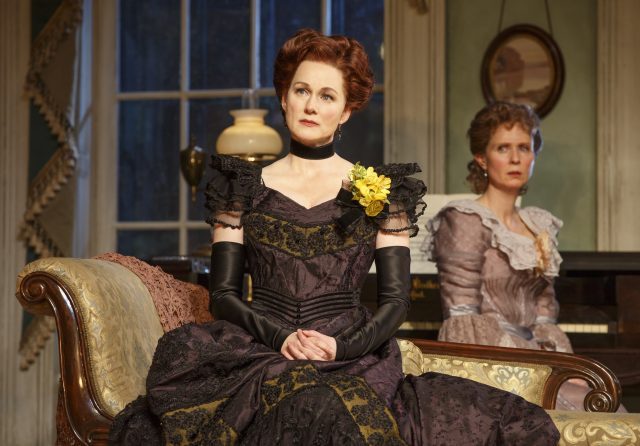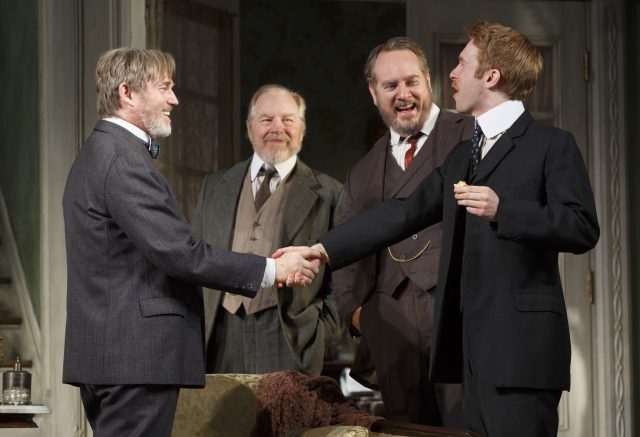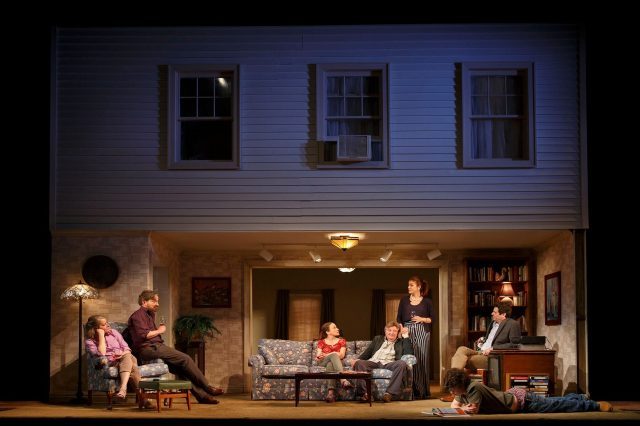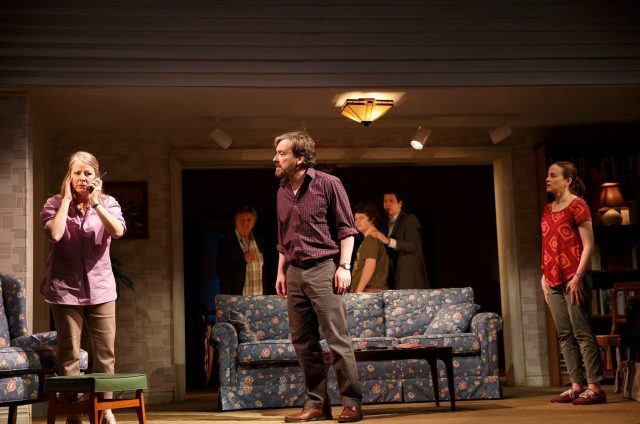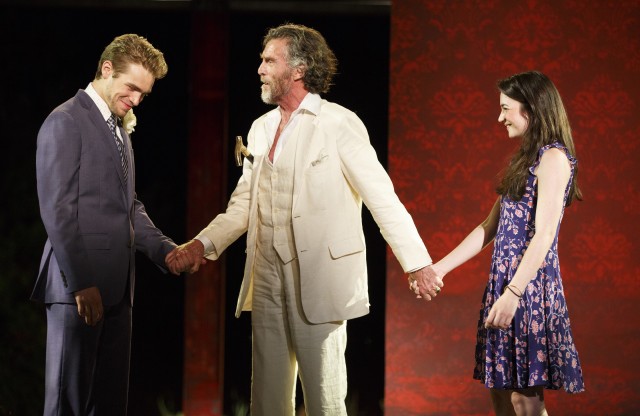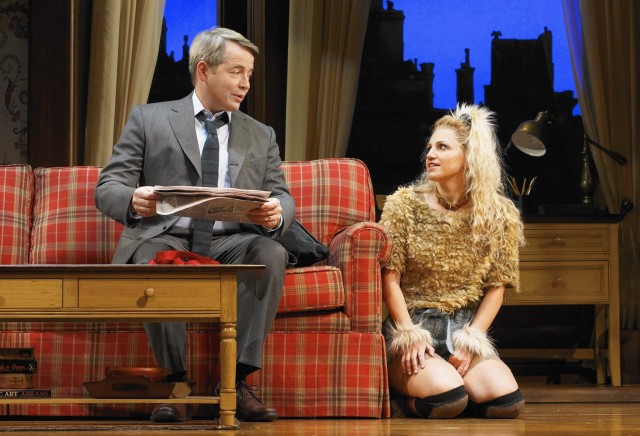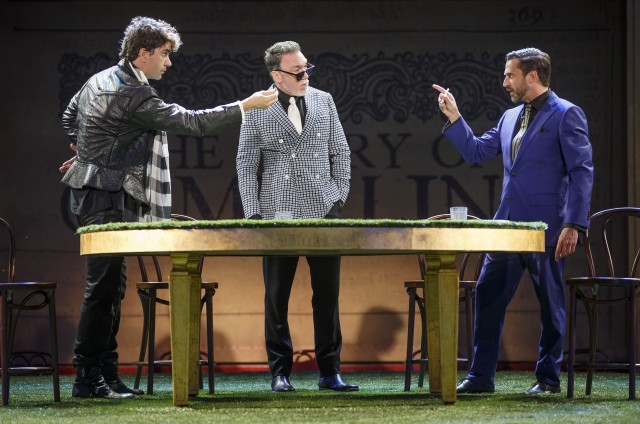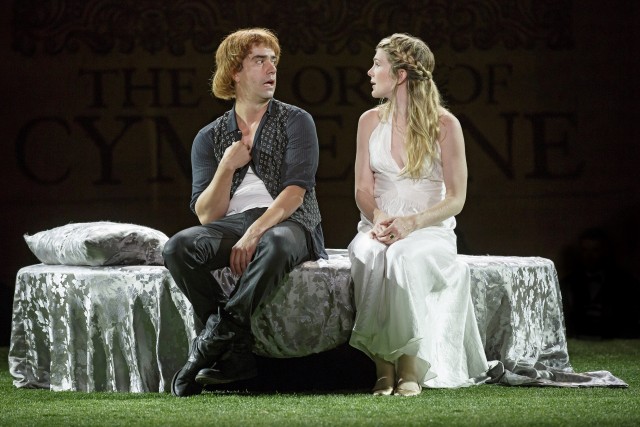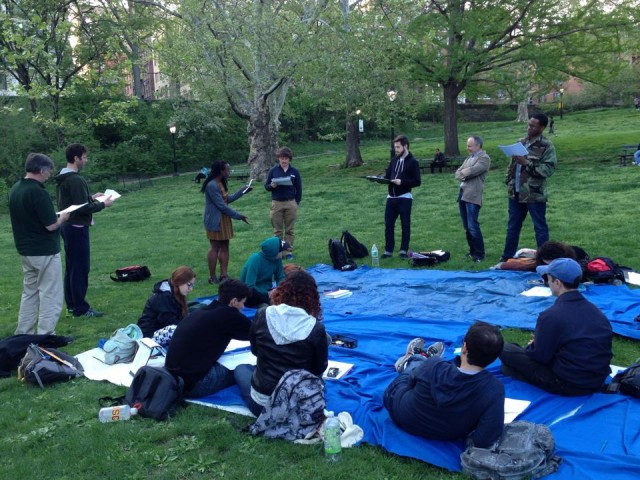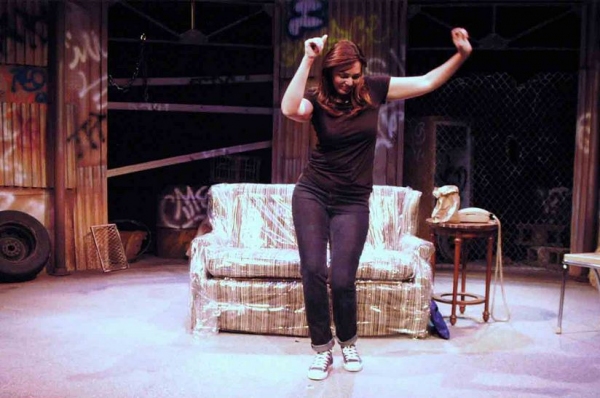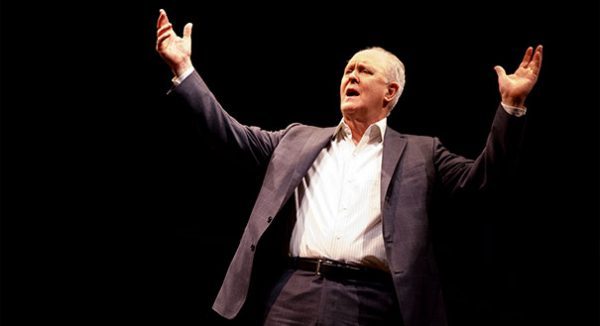
John Lithgow celebrates the power of storytelling in one-man Broadway show (photo by Joan Marcus)
American Airlines Theatre
227 West 42nd St. between Broadway & Eighth Ave.
Tuesday – Sunday through March 4, $49-$149
212-719-1300
www.roundabouttheatre.org
“So what the hell is this?!” John Lithgow proclaims at the beginning of his one-man Broadway show, John Lithgow: Stories by Heart, a Roundabout production that opened earlier this month at the American Airlines Theatre and continues through March 4. The two-act, two-hour presentation is a celebration of family, the art and power of storytelling, and the art of acting itself, but it’s too slight to feel like a full-fledged play. A Harvard grad and Mayflower descendant who was born in Rochester and raised in Ohio, Lithgow is one of our greatest actors, supremely accomplished on stage, screen, and television, as well as being a bestselling memoirist and children’s book author. Nominated for two Oscars, four Grammys, six Tonys (winning two), and twelve Emmys (taking home six awards), the seventy-one-year-old Lithgow (The World According to Garp, Third Rock from the Sun) has been a warming figure for five decades, a kind of thoughtful everyman who is charming even when he portrays wickedly evil villains. He’s been workshopping Stories by Heart on and off for ten years around the country, a kind of intimate, whistle-stop trunk show that combines personal memories with tour-de-force performances of a pair of classic short stories, one in each act. The format is clear and concise: Lithgow wanders around John Lee Beatty’s erudite, literary set, consisting of just a few chairs, a stool, and a small table in an elegant study, first sharing moving tales about his father, Arthur, a regional theater producer, director, and actor who operated several Shakespeare festivals, and his mother, Sarah, whom John says “was like some cheerful, unflappable road manager who always made everything turn out just fine.” Every night, Arthur would robustly read John and his siblings, David, Robin, and Sarah Jane, a story from the 1939 book Tellers of Tales, which contained one hundred short stories collected by W. Somerset Maugham. Lithgow proudly displays the treasured, beaten up, and humorously repaired copy his father used.
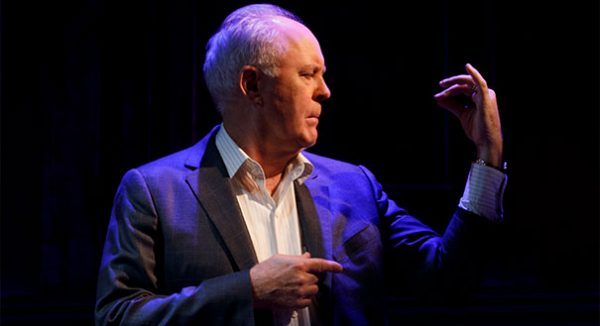
In John Lithgow: Stories by Heart, the master thespian pays tribute to his beloved father (photo by Joan Marcus)
In the first act, Lithgow (The Crown, Sweet Smell of Success) performs, from memory, Ring Lardner’s “Haircut,” as he remembers first picturing it in his head when his father read it to the kids in 1954. In dazzling style, Lithgow mimics every detail of giving a customer a shave and a haircut in a small town while relating the story of Jim Kendall, a troublemaker with a nasty sense of humor. In the second act, Lithgow talks poignantly about trying to take care of his aging father in the summer of 2002, turning the tables when he suddenly decides to offer to read his parents a story, and they chose P. G. Wodehouse’s wildly funny “Uncle Fred Flits By,” which Lithgow then performs onstage, playing every character, from Pongo Twistleton and Wilberforce Robinson to Mr. Walkinshaw and, of course, Uncle Fred. Lithgow is so skillful in telling the tale that, as with “Haircut,” you’ll think you are seeing all of the action happen before your eyes, even though it’s just one man with no props. But as good as each section of the play, expertly directed by Daniel Sullivan, is, and as sweetly captivating as Lithgow is, Stories by Heart does not quite come together as a Broadway production. As a play, it needs more of Lithgow talking about himself, his family, and his love of storytelling and less showing off his impressive acting abilities. Perhaps if I had seen it in Indianapolis, St. Louis, Austin, or Boulder or it ran at an off-Broadway house, I’d have a different reaction. But I found myself far more interested in Lithgow’s personal memories as they related to “Haircut” and “Uncle Fred Flits By” than by those short stories themselves, which take up the vast majority of Lithgow’s time onstage. Early on, Lithgow excitedly says to the audience, “I mean, look at you! You all look so eager and hopeful. What exactly are you hoping for? What do you hope will happen here tonight? What are you looking for? What do you want?” Stories by Heart is a grand and graceful public thank-you to Lithgow’s father, but I have to admit I was looking for something else, although there’s no doubt his father would have loved every second of it.
